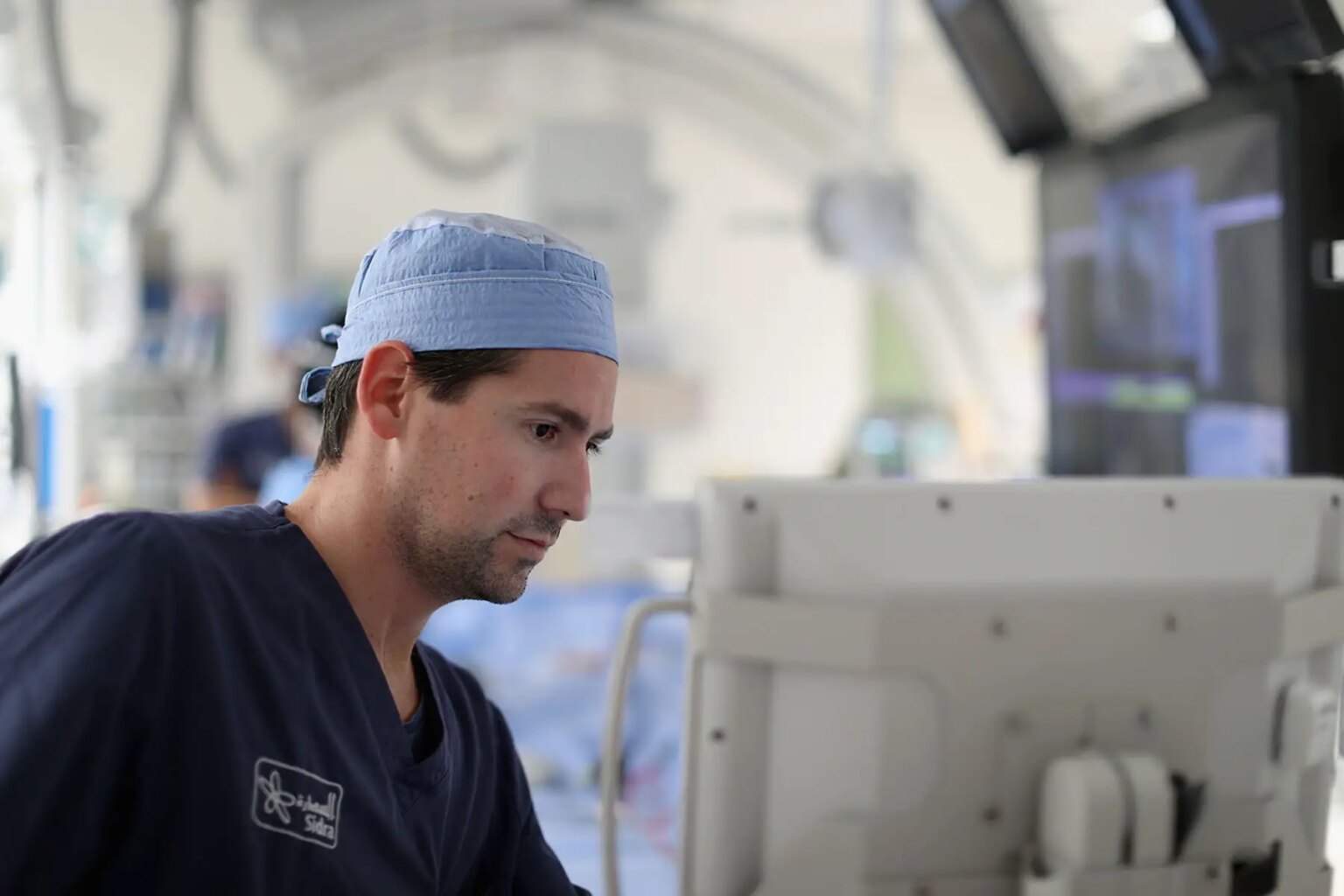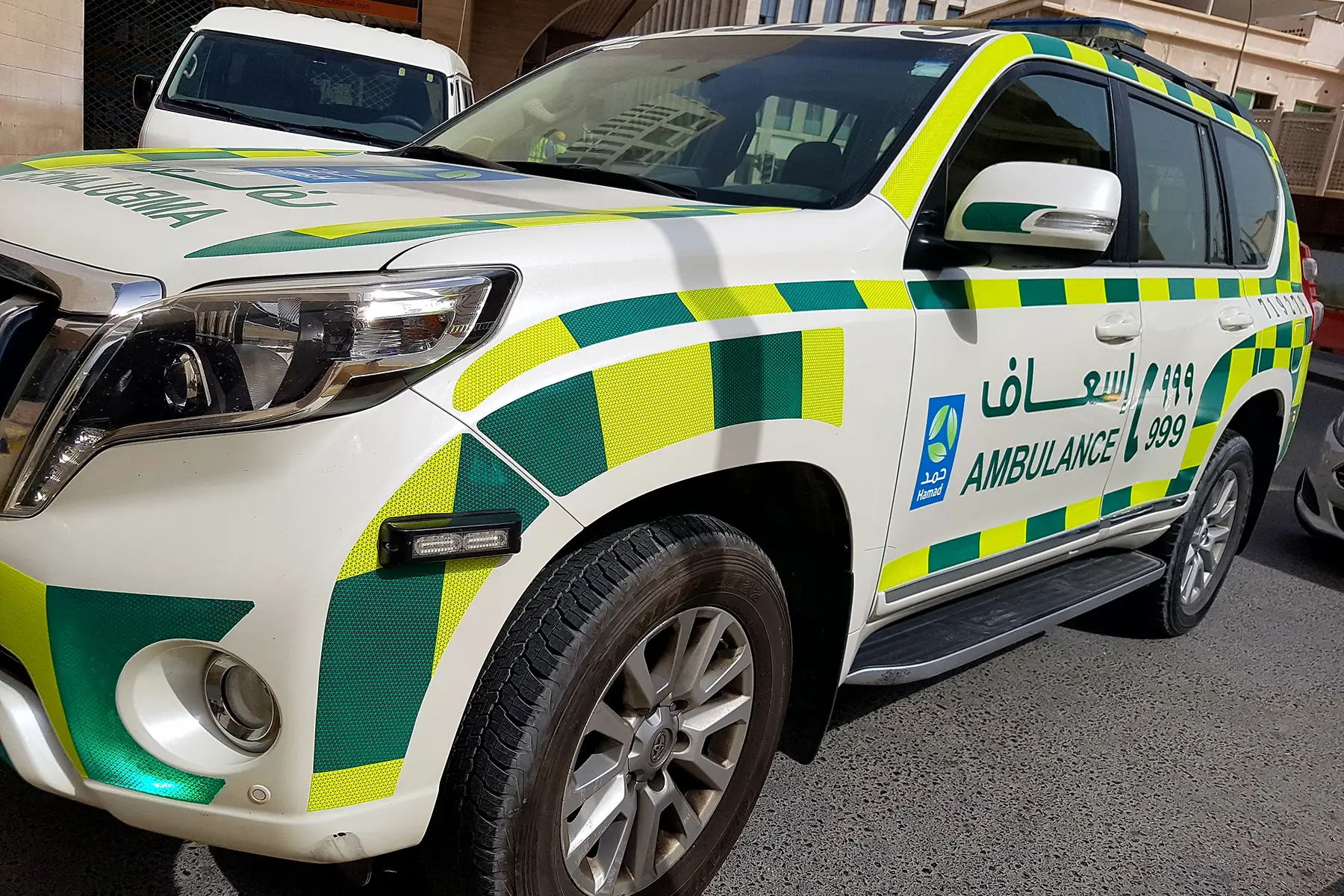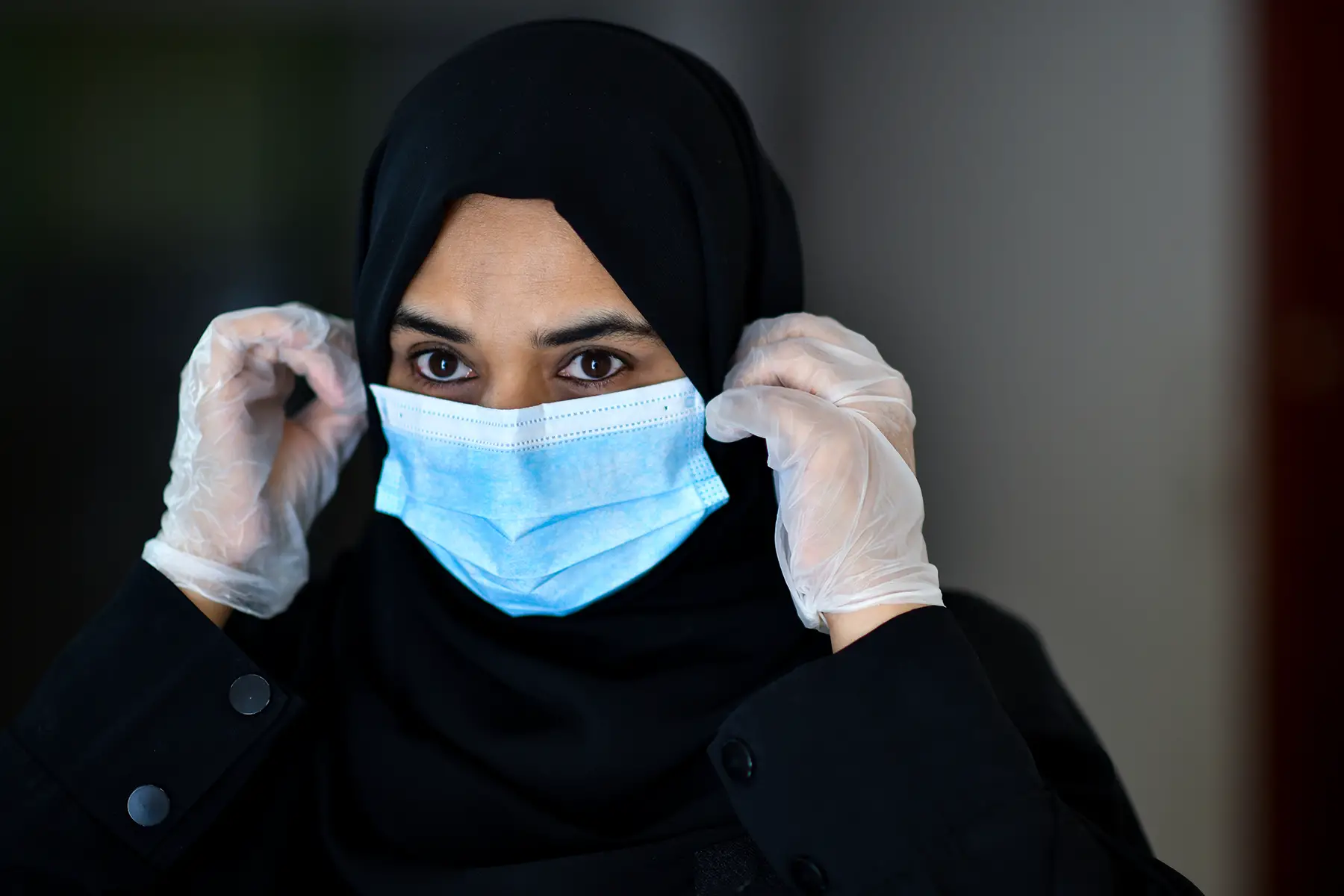Qatar is one of the few countries in the world that offers (almost) free universal healthcare to all its citizens. Its healthcare system incorporates both public and private medical care, and the quality of treatment is very high for citizens and expats alike.
Learn more about the topic, how internationals can access medical treatments, and in which instances you may have to pay for care. This article covers the following sections:
- How does healthcare in Qatar work?
- Cost of healthcare in Qatar
- Health insurance in Qatar
- How can expats register for healthcare in Qatar?
- Private healthcare in Qatar
- Healthcare facilities
- Healthcare professionals
- Specialized healthcare
- COVID-19 in Qatar
- Other forms of healthcare
- What to do in an emergency in Qatar?
- How to make a healthcare complaint?
- Useful resources
Cigna Global
Want access to the best private medical services in Qatar? Speak to the healthcare professionals at Cigna Global today and find a policy that’s right for you. Take advantage of their global network of doctors, specialists, therapists and more with coverage tailor-made for you and your family. If you’re starting a new life in Qatar, get peace of mind with Cigna Global.
How does healthcare in Qatar work?
The healthcare system in Qatar
Qatar (قطر) has a high-quality healthcare system that is one of the best in the Middle East – arguably one of the best in the world. It offers free or subsidized basic healthcare to all citizens from the Gulf Cooperation Council (GCC – مجلس التعاون لدول الخليج العربية), including those from Bahrain, Kuwait, Oman, Qatar, Saudi Arabia, and the United Arab Emirates.

Public healthcare services are provided through two organizations:
- The Primary Health Care Center (PHCC – مؤسسة الرعاية الصحية الأولية) – which runs 27 regional centers across the country
- The Hamad Medical Corporation (HMC – مؤسـسـة حمد الـطـبـيـة) – which runs public hospitals, community clinics, and the national ambulance service
The country also has a wide range of private healthcare options that operate alongside the public system. All medical care providers, both public and private, have to be registered with the Department of Healthcare Professions. This department is part of the Ministry of Public Health (MOPH – وزارة الصحة العامة), which oversees the healthcare system in Qatar.
Who can access healthcare in Qatar?
All GCC residents – including children – get free or subsidized healthcare in Qatar with the Health Card (بطاقة صحية). You can apply for one in person at a PHCC or online with the mobile app Nar’aakom.
Foreign nationals from outside that region are not covered by the public healthcare system. Instead, they must take out private health insurance (تأمين صحي) from a company that is registered with the MOPH. Visitors and expats can also get insurance from an international health insurance provider after approval from the government.
Cost of healthcare in Qatar
In 2020, Qatar reportedly spent AED 21.9 billion (US $6 billion) on healthcare. This is well below the 2022 GCC average of $17.4 billion, as well as the 2021 European Union (EU) average of $16.1 billion (or €14.6 billion). Of the total healthcare spending, 79.1% ($4.8 billion) came from the government.
While some public healthcare services are free, other procedures are heavily subsidized and require a small contribution. The MOPH annually reevaluates the coverage package, but it usually includes consultations with family doctors (طبيب الأسرة), specialized hospital care (مستشفى), emergencies (طارئ), mental healthcare, prescription medication (وصفة طبية), and dentistry (طب الأسنان).
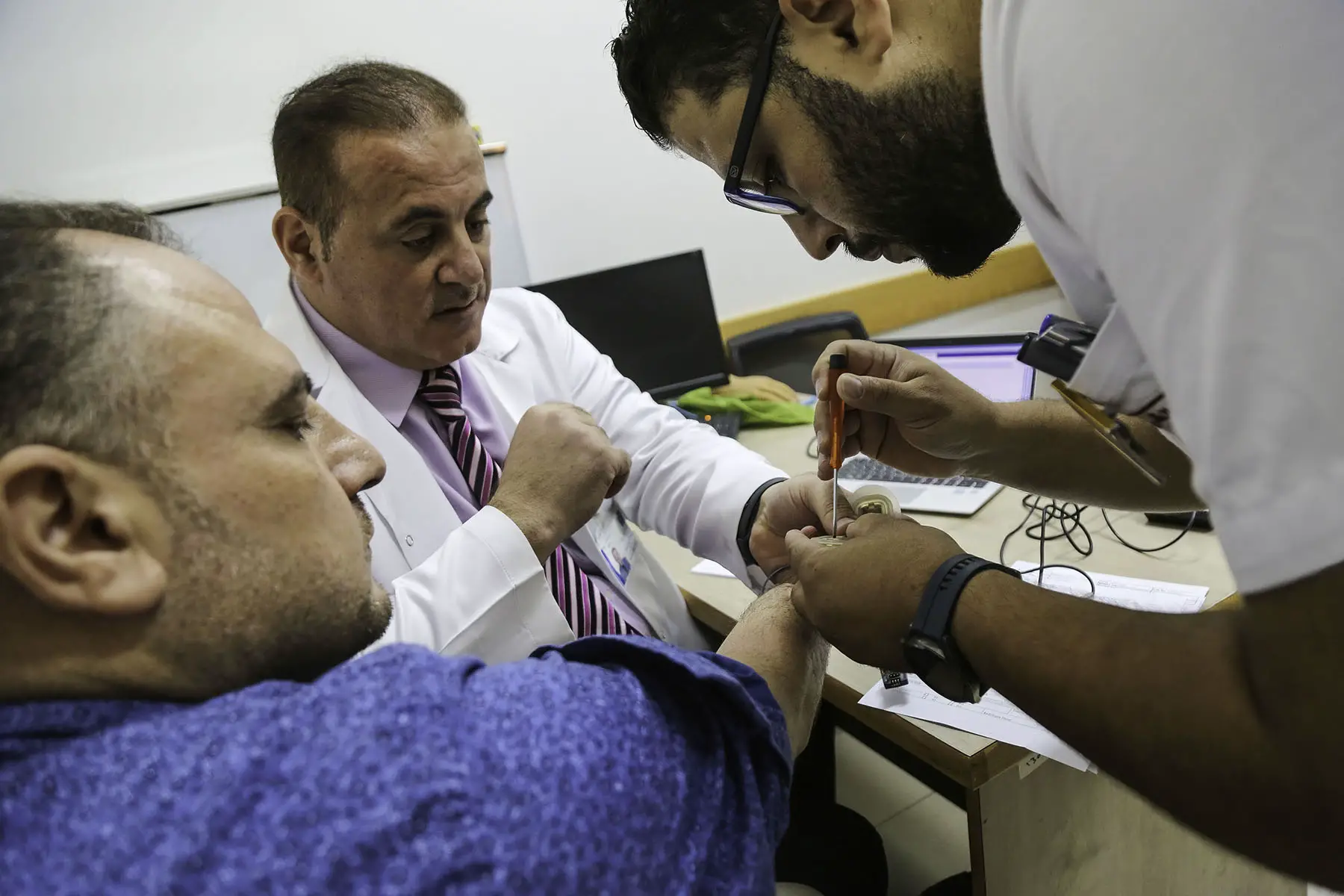
The Mandatory Visitors’ Health Insurance policy for expats and foreigners is QR 50 per month. This covers the very basics of healthcare needs like emergency care (up to QR 150,000 for the policy period) and emergency transportation (with a sub-limit of QR 35,000).
Health insurance in Qatar
According to the 2013 Healthcare Law, Qatari citizens are required to take out health insurance. However, that same law states that the government pays for people’s insurance premiums. In that sense, people get free or subsidized primary health care from public hospitals, health centers, and clinics.
That said, it is also common to top up public health insurance with additional private insurance. This can give access to better and faster medical care in private health centers. Most employers offer private health insurance as part of their employment package as well.
As said before, foreign nationals must take out private insurance from a company that is accredited by the MOPH. If you are in Qatar for work, your employer must take out insurance for you and your family. If you are not employed or you’re traveling through the region, you can also choose an international health insurance provider. Keep in mind that you must ask the government for approval first.
Expat-friendly health insurance companies operating in Qatar include:
How can expats register for healthcare in Qatar?
GCC nationals
GCC citizens can access healthcare with a Hayya card. You can apply for it by going to the Hayya portal or downloading the Hayya app to their phones.
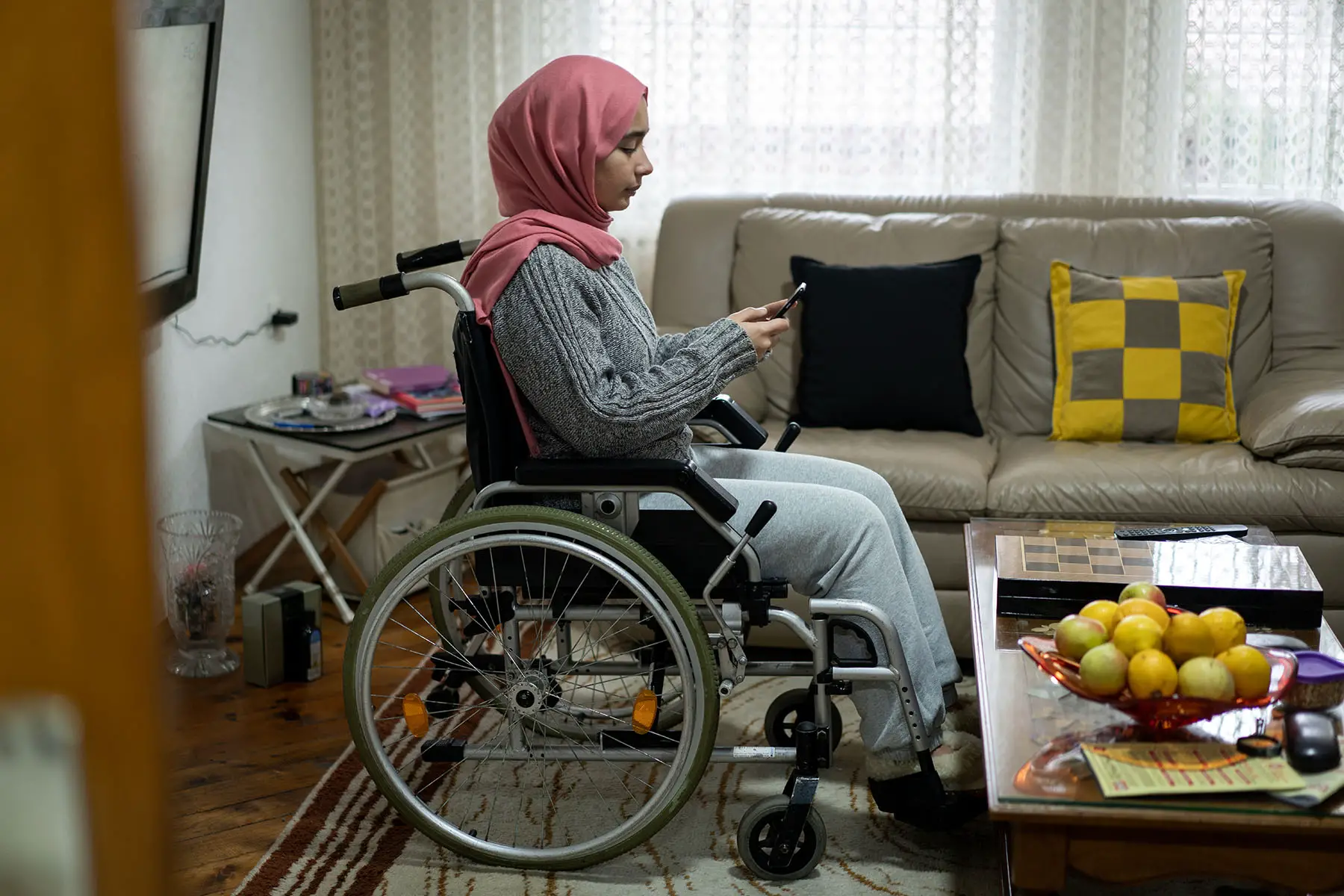
Requirements include having:
- A valid residence permit (expiring at least three months after arriving to Qatar)
- Confirmed accommodation
- A booked return flight
- A job title matching that on your residence permit
To apply, you must provide:
- Copy of a valid passport
- Copy of a valid residence permit
- A recent passport photo
After creating an account, you can apply for Hayya. You must fill out the details (including your birthdate, job title, and whether you had any previous nationalities) and pay a QR 100 fee. When your application is confirmed, you can use the Hayya Card to access any public healthcare facility in Qatar.
Non-GCC citizens
Foreign nationals from outside the GCC must first take out Mandatory Visitors’ Health Insurance or sign up for private health insurance through their employer. Without insurance, you will be denied entry into Qatar.
If you are a resident in one of the following countries, you can use the above procedure to get the Hayya Card and access medical care:
- Australia
- Canada
- New Zealand
- The UK
- The US
- Member states of the Schengen area
Be sure to select Visa with ETA (A3) to apply for Entry with Electronic Travel Authorisation.
You can get access to healthcare with a Health Card. You can apply for one in person at a PHCC or online with the mobile app Nar’aakom. Required documents depend on your age, nationality, and residency status, but usually include:
- A copy of your passport (جواز السفر, jawaz alsafar) or ID card (QID – البطاقة الشخصية, albitaqat alshakhsia)
- A passport photo
- A copy of a recent utility bill (فاتورة كهرماء, faturat kahurama’) to prove your address
- Your residence permit (تصريح الإقامة, tasrih al’iiqama)
- The original QID of your sponsor (if you are working as domestic staff)
The card costs QR 100 and must be paid using a credit card. You will receive it the same day or within a few days.
Private healthcare in Qatar
There are multiple private healthcare clinics and hospitals across the country. These are expensive, so medical insurance is a must. That said, you can usually get quicker treatment, access more specialized services, and be more likely to see English-speaking healthcare professionals.
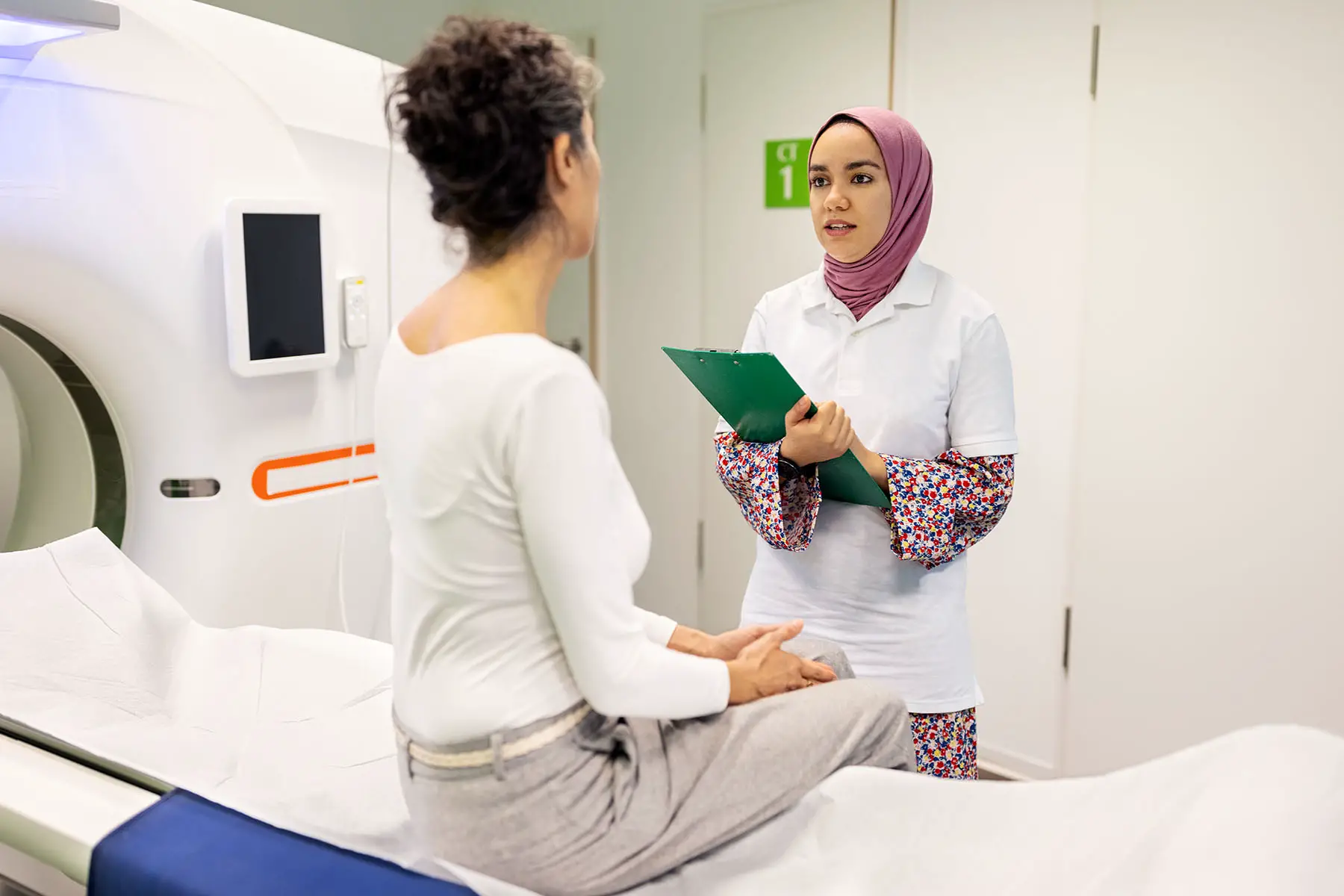
Private healthcare centers in Qatar include:
- Al Alhi Hospital
- Al Emadi Hospital
- AL Wakrah Clinics and Urgent Care Unit
- Doha Clinic Hospital
- Sidra Medicine
You can find a full list of private healthcare options on the government website.
Healthcare facilities
Health centers and clinics in Qatar
For non-emergency-related medical issues, your first point of contact – including getting prescription medication (روشتة, rushta) – is a primary care physician. These are based in your local PHCC. There are over 30 clinics located across Qatar, split into three regions – northern, central, and western.
The centers are usually staffed by:
- Doctors
- Nurses
- Dental assistants
- Allied health professionals
- Health center support nurses
You can find your local health center and schedule an appointment via the Nar’aakom app. Opening hours are typically from 07:00-23:00 on Sunday to Thursday. Weekend hours differ greatly; some are open according to the weekday schedule, some have reduced hours, and some are closed. Keep in mind that public holidays such as Eid and Ramadan can also affect working hours.
Pharmacies in Qatar
Prescription medication and over-the-counter remedies can be picked up from your local pharmacy (صيدلية, saydalia). These are usually located close to the health center or hospital, often indicated by a sign with the Staff of Asclepius.
Pharmacies stock an assortment of products, although brands can vary and some common prescription medicines might not be available. Some products, such as certain anti-depressant brands, are banned and some medication is controlled. Be sure to check with your healthcare provider what medication is available to you.

You can generally collect your prescription the same day or the next day, depending on availability. Medications typically require a small contribution.
There is no clear consensus on opening hours; some are closed during lunch hours and others are open 24 hours a day. To find your nearest pharmacy, you can use any search engine or check this list of pharmacies in Qatar.
Hospitals in Qatar
If you are in an emergency and need an ambulance (سياره اسعاف, sayaaruh aseaf), you can call the emergency number 999. For urgent non-life-threatening emergencies (e.g., you broke your leg), you can contact the HMC Urgent Consultation Service at 16000. The service operates from 08:00 to 15:00 on Sunday to Thursday. You can also go to a 24-hour PHCC Urgent Care facility.
HMC runs public hospitals, the national ambulance service, and home and residential care in Qatar. The country has nine specialist and three general public hospitals, as well as a number of private hospitals.
During a hospital stay, patients are typically given a bed in a private room or a shared room with four or five beds. Qatari patients get priority for private rooms, and non-Qatari patients are usually moved to common rooms. If you are upgraded to a private room for medical reasons, no extra costs are involved. Non-Qatari citizens who prefer a private room (without medical reasons) can request one for additional payment.
Hospital patients in Qatar usually have access to WiFi, cable TV, and in-room food service.
Healthcare professionals
Dentists in Qatar
Dental treatment is available through most of the PHCC health centers and some of the public hospitals. There are also numerous private dental clinics that provide a wide range of treatments, albeit at a higher cost.
Regular check-ups usually take place every year, though some dentists (طبيب أسنان, tabib ‘asnan) will invite you for a visit every six months. They may delegate certain tasks to dental assistants, and, when necessary, refer you to a specialist.
Doctors and specialists in Qatar
In 2020, there were 10,000 doctors and 17,000 nurses working in Qatar. Of those, only 500 (about 6%) doctors and 1,700 nurses (1%) were Qatari citizens.
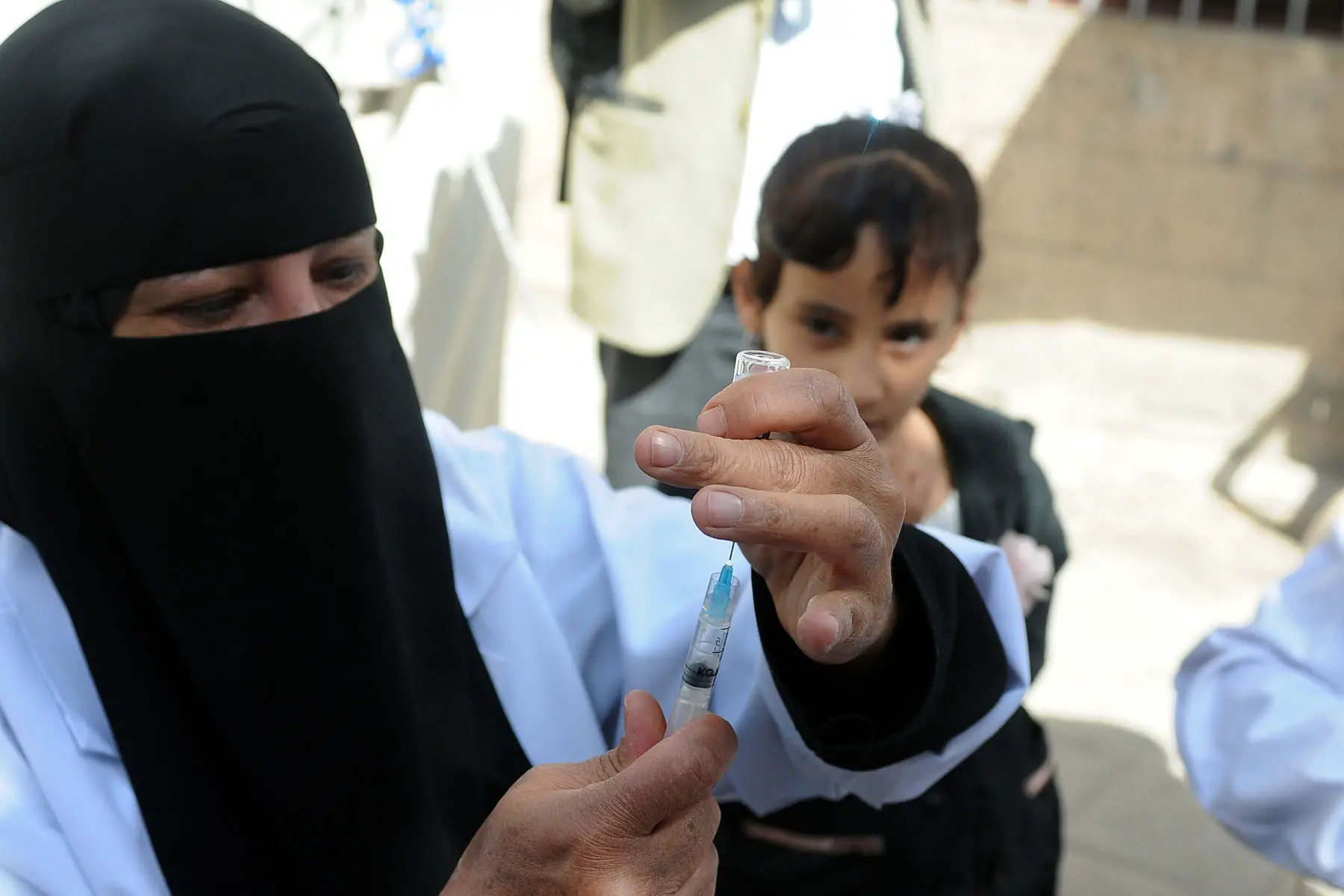
About 40% of physicians work at a PHCC – your first point of contact when you have a health issue. They deal with routine medical problems, such as family medicine, standard gynecological and pediatric examinations, cancer screening, and other primary care. They can also refer you to a specialist.
You can find a list of practitioners on the government website.
Physical therapy in Qatar
Physiotherapy (علاج بدني, eilaj badaniun) is relatively new in Qatar. As such, only some treatments are available at PHCCs. You can also get a referral to a specialized health center or hospital.
Specialized healthcare
Children’s healthcare in Qatar
In the last few decades, Qatar has placed an enormous focus on curative and preventative healthcare for children. This means that there is a wide range of pediatric healthcare services available.
For curative treatment (i.e., health issues), there are several PHCCs and Pediatric Emergency Centers (PEC – مراكز طوارئ الأطفال, marakiz tawari al’atfal) located across the country.
Schools employ school nurses and offer general health programs to raise health awareness and help children achieve a better standard of health and physical development. They also conduct various immunization campaigns.
Vaccinations are available for free to children of residents through the National Immunization Program. A total of 14 different vaccines are currently administered, though, more are recommended.
Mental healthcare in Qatar
Another point of focus during the last decades was mental healthcare. In 2016, the country passed a new Mental Health Law that outlined the rights of patients with mental health disorders and regulated their care and treatment.
In the years that followed, there were annual awareness campaigns to destigmatize mental health issues, and in 2020, Qatar launched a national mental health helpline to ensure remote access to mental health services.
You can reach the helpline at 16000. The service operates from 08:00 to 15:00 on Sunday to Thursday. If it’s less urgent, you can schedule an appointment at your local PHCC or selected HMC.
Sexual and reproductive health in Qatar
Married women in loving relationships have good access to sexual and reproductive healthcare in Qatar. However, girls, unmarried women, and unhappily married women can experience much difficulty, according to a 2021 report by Human Rights Watch (HRW – هيومن رايتس ووتش, hyumin rayits wutsh). Girls and women must always have the permission of a male guardian to access medical health services (among many other things).
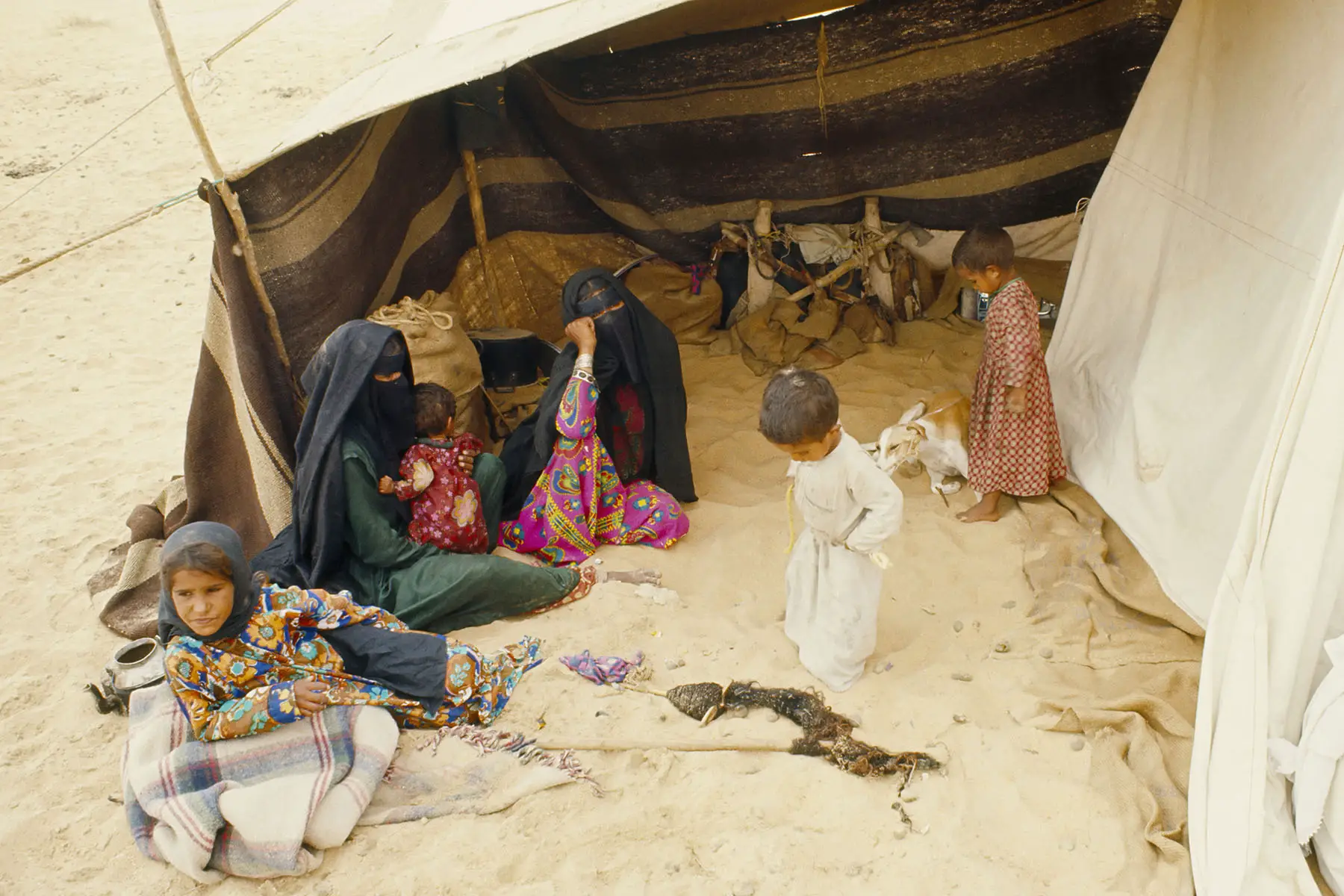
There is only a limited amount of contraception methods (منع الحمل, mane alhaml) available. You can buy condoms (واق ذكري, waq dhikari) and contraceptive pills (حبوب منع الحمل, hubub mane alhaml) at pharmacies. Local health centers can also give you a contraceptive injection (حقن منع الحمل, huqan mane alhaml). Intrauterine devices (IUD – اللولب الرحمي, allawlab alrahmiu – اللولب ) are only available through private healthcare professionals.
It is unclear whether the morning-after pill (صباح اليوم بعد حبوب منع الحمل, sabah alyawm baed hubub mane alhaml) is available in Qatar.
As with everything, the first point of contact for sexual and reproductive healthcare is the local PHCC. If necessary, you can get a referral for a specialist.
Women’s healthcare in Qatar
The overall standard of women’s healthcare in the larger cities in Qatar is great. In rural areas, women likely have to travel further to have access.
Women aged 21-49 are invited to do cervical cancer checks every three years, and every five years when aged 50-69. There is a national breast cancer screening program for women aged 45-69. The MOPH recommends a screening every three years.
Cancer screenings, pregnancies, and maternity care are arranged through the local family doctor. Either they will perform the exams themselves or refer you to a specialist. Abortion is only permitted in certain circumstances and pregnancy out of wedlock is illegal.
Appallingly, there’s not yet a law to protect people from domestic violence (العنف المنزلي, aleunf almanziliu). In 2022, legislation was drafted but is yet to pass.
If you experience domestic abuse or sexual violence (عنف جنسي, eunf jinsiun), you can try reaching out to the Protection and Social Rehabilitation Center (AMAN – مركز الحمايه والتأهيل الاجتماعي, markaz alhimayih waltaahil alaijtimaeii – امان). The hotline number is 919.
COVID-19 in Qatar
On 1 April 2023, the Qatari government lifted all restrictions that they placed in 2020 to curb the spread of COVID-19. Self-tests and self-isolation are no longer required. You can still receive a (booster) vaccination by booking an appointment at your local PHCC.
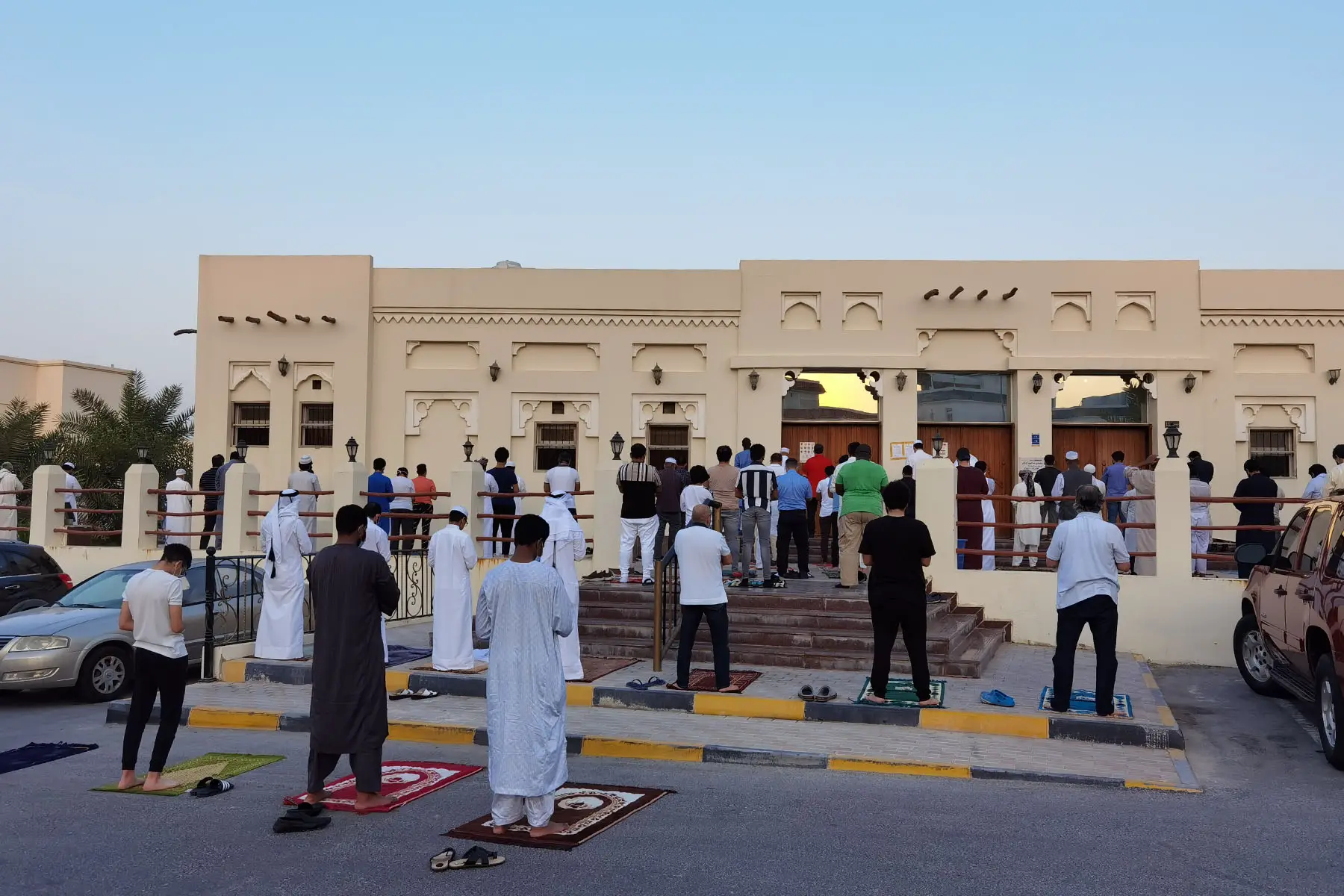
There is no support for long-COVID available. If you experience symptoms, it’s recommended you contact your primary care physician.
Other forms of healthcare
Alternative medicine in Qatar
Complementary therapies and alternative medicines (الطب البديل, altibu albadil) are not legal in Qatar. Although cupping (الحجامة, alhijama) seems to gain popularity, therapies such as acupuncture العلاج بالإبر, aleilaj bial’iibar), chiropractic treatment (العلاج بتقويم العمود الفقري, aleilaj bitaqwim aleamud alfaqrii), and homeopathy (علاج بالمواد الطبيعية, eilaj bialmawadi altabieia) are not available.
Wellness treatment in Qatar
You can visit a PHCC wellness center to recuperate and gain a healthy lifestyle. These centers help people make positive lifestyle choices, achieve balance in their physical, mental, social, emotional, and spiritual health, and live a longer, healthier, and more productive life.
What to do in an emergency in Qatar?
If you are in a life-threatening emergency, you can call the emergency number 999. This number is free of charge and the operator speaks various languages, including Arabic and English. If you have an urgency, but it is not life-threatening, you can call the HMC helpline 16000.
Other emergency numbers include:
| Emergency service | Phone number |
| Ambulance | 999 |
| Police | 999 |
| Qatar Red Crescent | 00974 4402 7777 |
| AMAN Hotline (domestic abuse or violence support) | 919 |
| Mental health crisis helpline | 16000 |
How to make a healthcare complaint?
If you’ve experienced an issue with a doctor or a clinic, you should raise it with the healthcare center first. After that, you can file a complaint through the Governmental Health Communication Center (GHCC – مركز الاتصال الصحي الحكومي, markaz alaitisal alsihiyi alhukumii). The complaint will then be investigated.
If the government decides to impose sanctions or a fine, the healthcare facility has 30 days to file an appeal.
